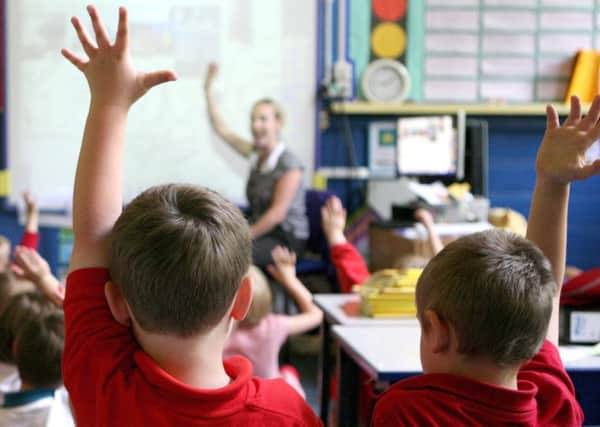Mental health lessons planned for under-10s


Portsmouth education and health bosses want to team up and ensure pupils in primary and secondary schools don’t develop problems – and also want to tackle social media’s influence over the lives of young people.
It comes as the prime minister yesterday unveiled a package of reforms to support the most vulnerable in society – with an emphasis on schools playing a greater role in supporting children – and plough millions of pounds of cash into services changing lives.
Advertisement
Hide AdAdvertisement
Hide AdPortsmouth’s mental health strategy – which education leaders had been working on prior to the government announcements – could see low mood, anxiety and stress discussed in classrooms as part of existing PSHE learning, a planned programme helping young people develop fully as individuals.
The aim is also to tackle Facebook bullies.
A ‘tough love’ approach could see children who have fallen out talk out their problems with each other to help mend broken relationships.
Schools could be told to better promote online ‘self-help’ resources and a ‘peer-mentor scheme’ would see students support each other with mental health issues.
Council director of children’s services Alison Jeffery said: ‘It’s about helping children to see the consequences of their actions, take responsibility and have their voice heard.’
Advertisement
Hide AdAdvertisement
Hide AdShe added: ‘One of the things people worry about is social media.
‘In the old days, students would be able to escape, not take issues home with them and start the next day afresh.
‘Now young people are able to chat 24 hours a day.
‘They are on Facebook in the middle of the night. That chat can raise anxiety and make them self-conscious.’
Welcoming the city’s work, which has been put together in a report set to be agreed upon at a later date, Richard Barritt, chief executive of Solent Mind, said: ‘Children need access to good quality, mental health services, but it’s important from the point of prevention.
Advertisement
Hide AdAdvertisement
Hide Ad‘If we can step in at an early stage and address mental health issues, then that is a whole lot better than a person having to wait for a diagnosis and for treatment.’
Civic leaders have praised the renewed approach to tackling mental health problems.
Tory education boss, Councillor Neill Young said: ‘Our young people are growing up in a fast-paced world and any assistance that we can offer to help build their resilience is always welcome.
‘It’s great that this there’s a national focus on improving mental health for young people.
Advertisement
Hide AdAdvertisement
Hide Ad‘It’s something which we are committed to working on with families and schools in the city.’
Portsmouth South MP Flick Drummond said: ‘Here in Portsmouth there is a big demand for help. It is estimated that there are 8,940 children with mental health problems. More must be done to help them.’
Fareham MP Suella Fernandes said: ‘It is a shameful injustice for people to suffer in silence.
‘For too long, the stigma and the dangerous disregard of mental health issues as secondary to physical health has destroyed lives.’
Advertisement
Hide AdAdvertisement
Hide AdA key measure of the government’s plan is the offer of mental health first aid training in secondary schools – a course that teaches people how to understand and help a person who may be developing a mental health issue.
A £15m national fund will provide alternatives to hospital visits, such as ‘crisis cafes’ and community clinics.
Mental health groups back the local and national pledges to keep people on track – but say they await more detail.
Mr Barritt of Solent Mind, which supports around 500 people a year in the Portsmouth area, said: ‘The devil is in the detail. We like to be a little cautious in welcoming announcements about funding, because too often, when it goes down into the local economy, funding finds its way to something else and that’s particularly been the case with mental health in the past.
Advertisement
Hide AdAdvertisement
Hide Ad‘But there is some good stuff here, which we would welcome, particularly parity of esteem.
‘Mental health shouldn’t be the easiest target for cuts, but regarded as the equivalent of physical health in terms of the priority it needs.’